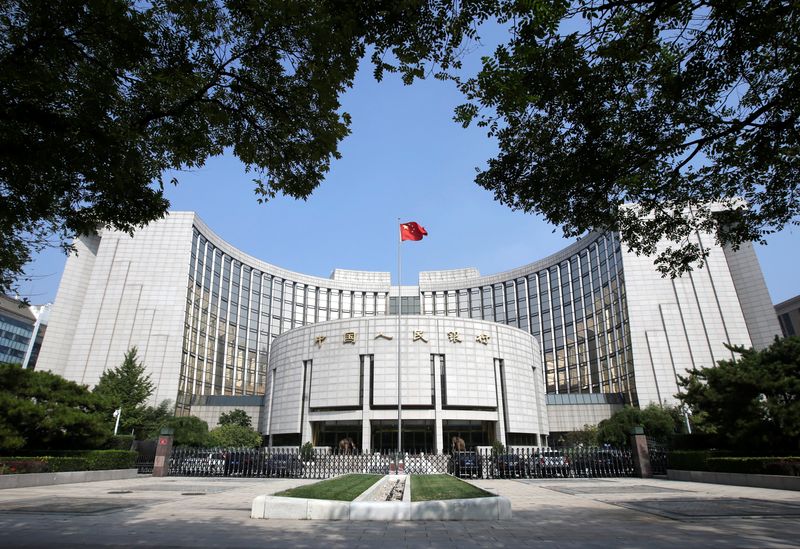China cuts reserve ratio given domestic pressures, overseas risks – state media
2023.03.17 23:21

© Reuters. FILE PHOTO: Headquarters of the People’s Bank of China (PBOC), the central bank, is pictured in Beijing, China September 28, 2018. REUTERS/Jason Lee/File Photo
SHANGHAI (Reuters) – China’s central bank made a “timely” move by pumping liquidity into the banking system to respond to rising pressures in the domestic banking industry and growing risks abroad, a state-owned Chinese newspaper said on Saturday.
The central bank on Friday reduced the amount of cash banks must hold as reserves for the first time this year to support a nascent recovery in the world’s second-biggest economy. The cut in the reserve ratio came earlier than financial markets had anticipated.
The Economic Daily said in a front-page article that the move by the People’s Bank of China will ease tension after demand for funds had increased significantly amid the economic recovery. The early release of liquidity will also help prepare for the next stage of demand expansion, it said.
“Currently the risks in the overseas banking industry are increasing and the external environment is becoming more and more complicated,” the newspaper said.
“With the domestic banking industry’s debt repayment costs under pressure and the net interest margin continuing to narrow to historical lows, the central bank made a timely move to lower the reserve requirement ratio to release long-term liquidity to the financial system,” it said.
The Global Times, a state-controlled tabloid, cited experts as saying the cut reflected the Chinese government’s “responsibility to the world” in not following the U.S. in raising interest rates but sticking to an independent monetary policy.
China’s leaders have pledged to step up support for the economy, which is gradually rebounding from a pandemic-induced slump after COVID-19 curbs were abruptly lifted in December.
Global markets this week have been hit by the collapse of U.S. lenders Silicon Valley Bank and Signature Bank (NASDAQ:) and uncertainty over Credit Suisse Group AG, which tapped $54 billion in central bank funding.








